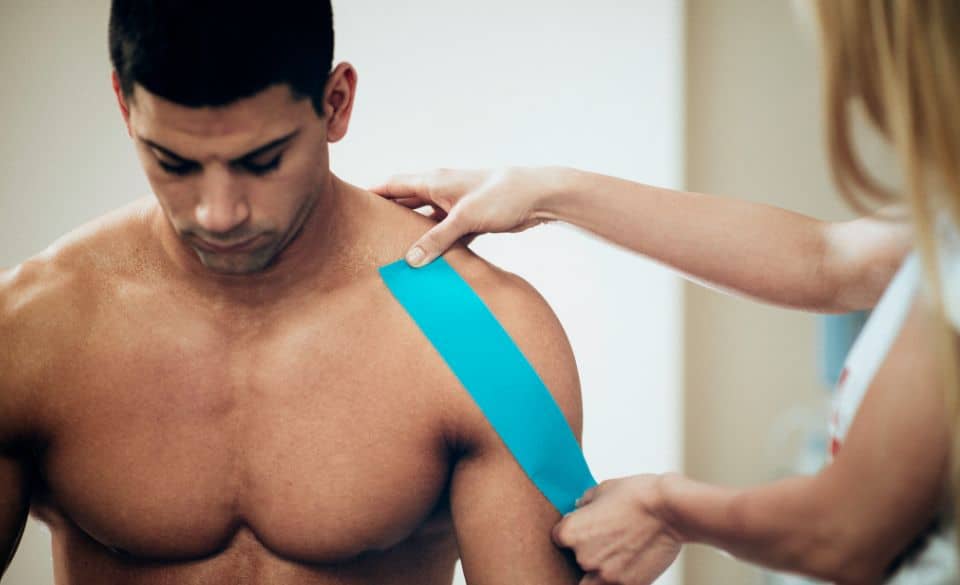
How Does Physical Therapy Help Athletes – A Complete Guide
Page Contents
Physical Therapy is a vital part of any athlete’s training and rehabilitation regimen. Physical therapy helps athletes prevent injuries, speed up the healing process after an injury, and improve their overall performance.
In this article, we will discuss how physical therapy can help athletes reach their fitness goals. We’ll also explore the various types of physical therapy treatments that are available to athletes.
1. What is physical therapy and how does it help athletes
2. The benefits of physical therapy for athletes
3. How physical therapy can improve an athlete’s performance
4. When should an athlete seek out physical therapy
5. How long will an athlete need to undergo physical therapy
6. What are the possible risks associated with physical therapy
What Is Physical Therapy?
Physical therapy is a vital form of healthcare that helps people to recover from injuries and surgeries. It can also be used to prevent future injuries from occurring. Physical therapists work with patients of all ages, from infants to the elderly. They use a variety of techniques to help their patients regain mobility, strength, and even flexibility.
Athletes who are recovering from an injury or surgery often need physical therapy to regain their strength and range of motion. Athletes also use physical therapy to prevent injuries and keep their bodies in peak condition. Physical therapy can also be used for rehabilitation after a stroke or other neurological event.
No matter what the reason for seeking out physical therapy, patients can expect to receive individualized care through a variety of techniques, including:
– Acupuncture
– Aquatic Therapy (Hydrotherapy)
– Aerobic activities
– Cardiopulmonary
– Dry needling
– Edema control (Dropsy)
– Electrical stimulation (Electrotherapy)
– Heat and cold therapy
– Sports Massage
– Stretching
– Exercises
If you are looking to improve your overall health and wellbeing, or if you are recovering from an injury or surgery, consider making an appointment with a physical therapist.
The Benefits Of Physical Therapy For Athletes
There are many different types of physical therapy, so it is vital to find a therapist that specializes in sports medicine. They will be able to create a tailored plan that meets your specific needs.
Some of the benefits of physical therapy for athletes include:
– Preventing injuries: A good physical therapist will be able to identify any weak spots or areas of tightness that could lead to an injury. Groin pain after running or hip pain from running are a few common injuries runners see a physical therapist for. They will then work with you to strengthen those areas and improve your overall movement pattern. This can help reduce your risk of sustaining an injury in the future.
– Speeding up the healing process: If you do happen to get injured, physical therapy can help speed up the healing process. They will work with you to improve your range of motion and reduce inflammation. This will help you get back to your sport as quickly as possible.
– Improving performance: Physical therapy can also help improve your overall performance. They will work with you to improve your strength, power, and endurance. This can help you run faster, jump higher and be more successful in your chosen sport.
If you are an athlete, or even if you just want to reduce your risk of sustaining an injury, consider seeing a physical therapist. They can help you in ways that you may not have even thought possible.
How Does Physical Therapy Help Athletes?
Physical therapy can help athletes in several ways. It can help prevent injuries, rehabilitate after an injury, and improve overall performance.
Preventing Injuries: Physical therapy can help identify risk factors that may lead to injuries. For example, if an athlete has poor flexibility, physical therapy can help improve range of motion and reduce the risk of injuries. Physical therapy can also help athletes with proper form and technique to avoid injuries.
Rehabilitation After an Injury: If an athlete does suffer an injury, physical therapy can be vital in the rehabilitation process. Physical therapy can help reduce pain and swelling, improve range of motion, and strengthen the injured area. Physical therapy can also help prevent further injuries by addressing any underlying issues that may have contributed to the initial injury.
Improving Overall Performance: Physical therapy can also help athletes improve their overall performance. By improving flexibility, range of motion, and strength, physical therapy can help athletes reach their peak performance. Physical therapy can also help athletes with proper form and technique to ensure they are performing at their best.
When Should An Athlete Seek Out Physical Therapy?
There are several reasons why an athlete might seek out physical therapy.
If an athlete is experiencing pain during or after training or competition, this can be a sign that something is wrong and physical therapy may be able to help. Other signs that physical therapy might be beneficial include reduced range of motion, loss of strength, or decreased performance.
In some cases, an athlete may be dealing with a specific injury or condition that can be helped by physical therapy. This could include tendonitis, bursitis, stress fractures, or other injuries.
Additionally, many athletes choose to see a physical therapist for preventative care. This can help reduce the risk of injury and keep the body healthy and performing at its best.
If you think physical therapy could be helpful for you, the first step is to consult with your doctor or coach. They will be able to give you more information and help you decide if seeking out physical therapy is the right decision for you.
How Long Will An Athlete Need To Undergo Physical Therapy?
This is a difficult question to answer as it depends on the individual athlete and the nature of their injury. However, most athletes can expect to undergo at least some form of physical therapy to recover from their injuries. The length of time required will vary depending on the severity of the injury and how well the athlete responds to treatment. In general, however, most athletes should expect to undergo at least a few weeks or even months of physical therapy. Serious injuries may require even longer periods of therapy. Ultimately, the goal is for the athlete to make a full recovery and return to their previous level of activity.
What Are The Possible Risks Associated With Physical Therapy?
Athletes often turn to physical therapy to help them heal from injuries and improve their performance. While physical therapy can be beneficial, there are also some risks associated with it.
One of the most common risks is developing an overuse injury. This can occur when athletes push themselves too hard during therapy or don’t give their bodies enough time to recover between sessions. Overuse injuries can be difficult to recover from and may require a prolonged period of rest.
Another risk of physical therapy is infection. This is typically a concern for those who undergo surgery as part of their treatment plan. Infection is always a risk whenever there is surgery, but it can be especially problematic for athletes who need to keep their bodies in peak condition.
Finally, there is always the risk of exacerbating an existing injury. This can happen if an athlete is not careful or does not follow their physical therapist’s instructions. Aggravating an injury can set back an athlete’s progress and may even require them to take a step back in their training.
Overall, physical therapy can be a helpful tool for athletes, but it’s important to be aware of the risks involved. Those who are considering physical therapy should speak with their doctor or a certified physical therapist to learn more about what to expect.



